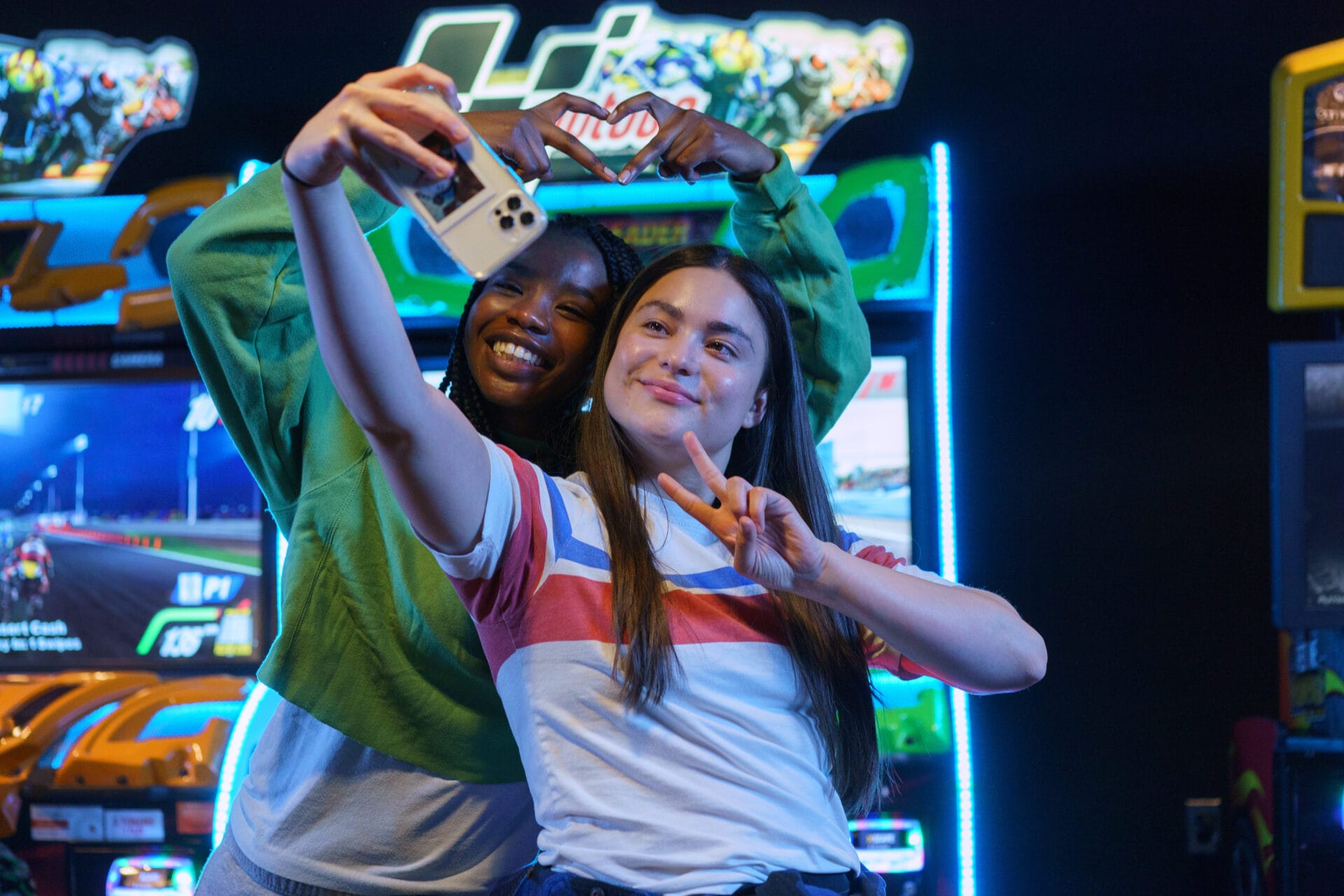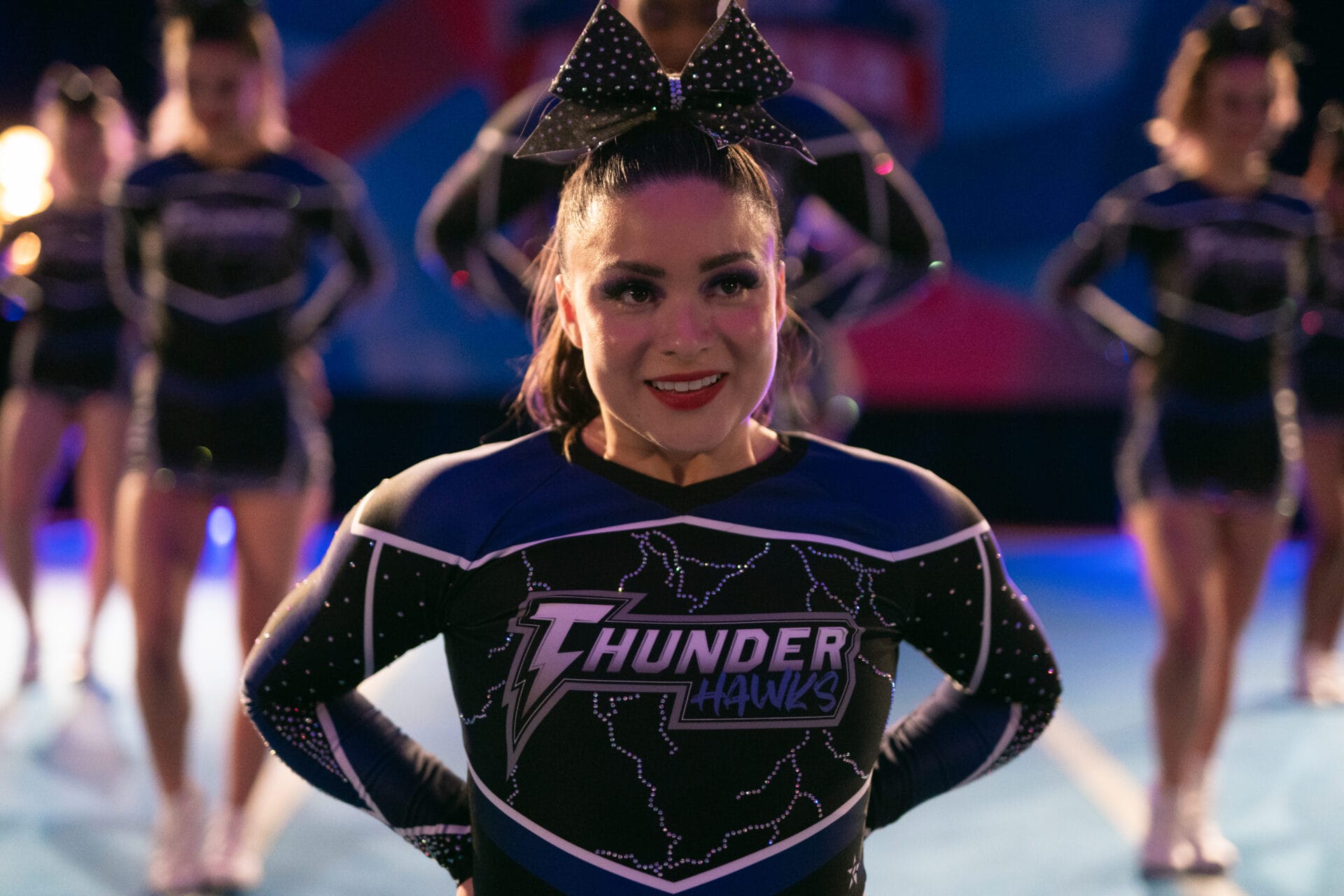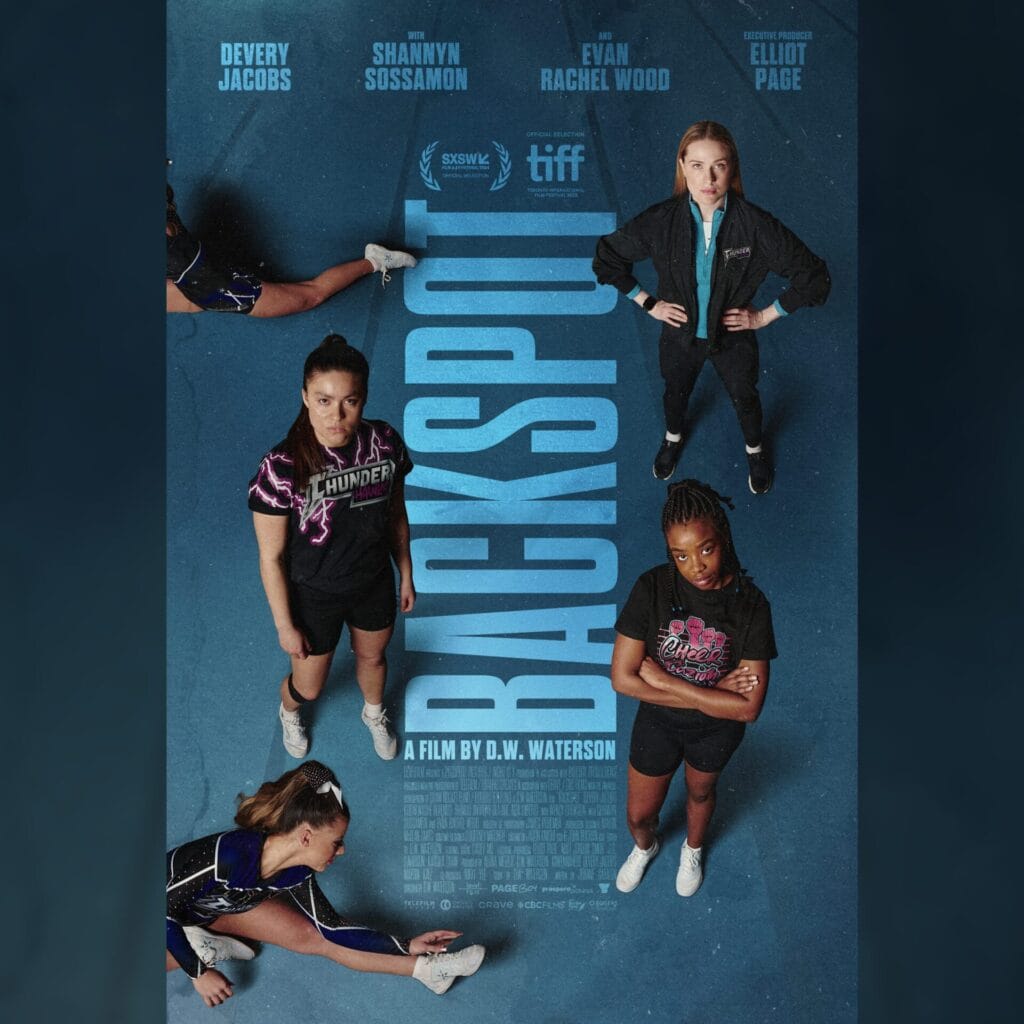Following a 2023 world premiere at the Toronto International Film Festival, queer cheerleading drama Backspot has now hit theatres in the U.S. and Canada. The film, starring Evan Rachel Wood and Devery Jacobs – whom you may know from GLAAD Media Award nominated series Reservation Dogs – is nonbinary filmmaker and musician D.W. Waterson’s debut feature. Written by Joanne Sarazen, Waterson and Jacobs also produced the film under their production company Night Is Y, alongside Elliott Page under Page Boy Productions.
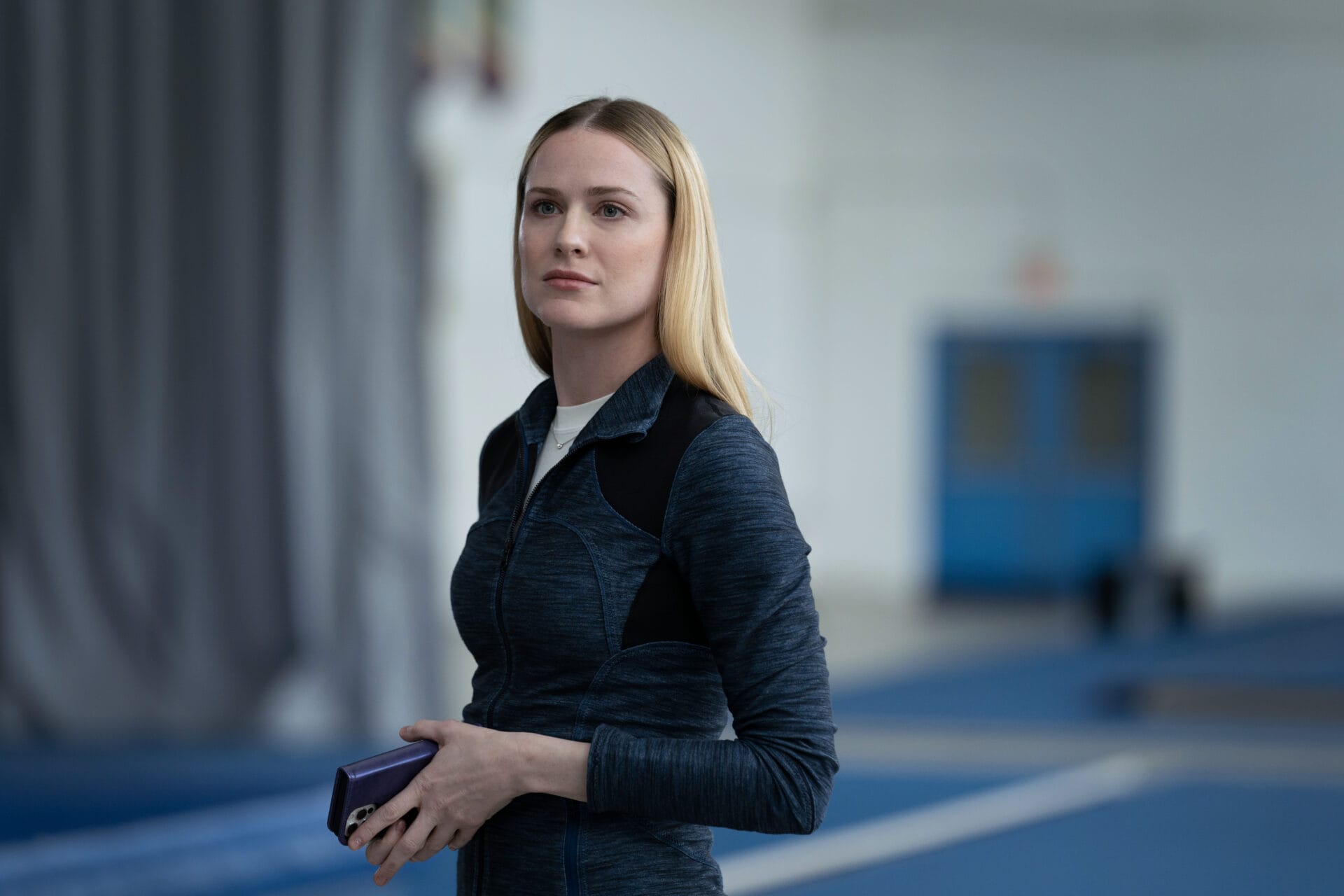
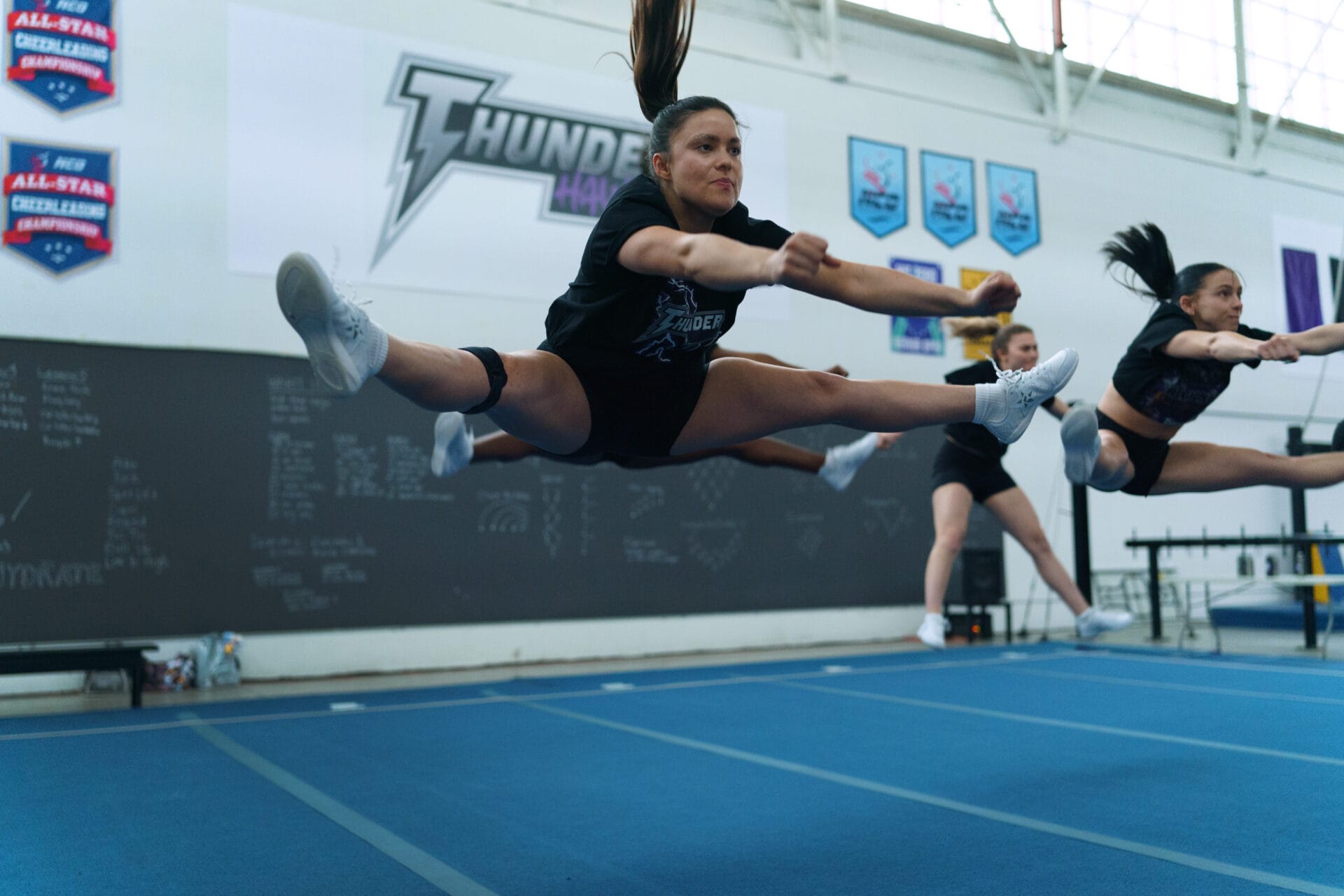 Drama unfolds when young cheerleaders Riley (Jacobs), her girlfriend Amanda (Kudakwashe Rutendo) and their best friend Rachel (Noa DiBertro) are invited to join the prestigious all-star cheerleading group the Thunderhawks. In this new cutthroat environment led by two queer coaches – the tough-as-nails Eileen McNamara (Wood) and the firm but encouraging Devon (Thomas Antony Olajide) – the bond shared by this trio begins to crack as they come face-to-face to what it takes to be the best.
Drama unfolds when young cheerleaders Riley (Jacobs), her girlfriend Amanda (Kudakwashe Rutendo) and their best friend Rachel (Noa DiBertro) are invited to join the prestigious all-star cheerleading group the Thunderhawks. In this new cutthroat environment led by two queer coaches – the tough-as-nails Eileen McNamara (Wood) and the firm but encouraging Devon (Thomas Antony Olajide) – the bond shared by this trio begins to crack as they come face-to-face to what it takes to be the best.
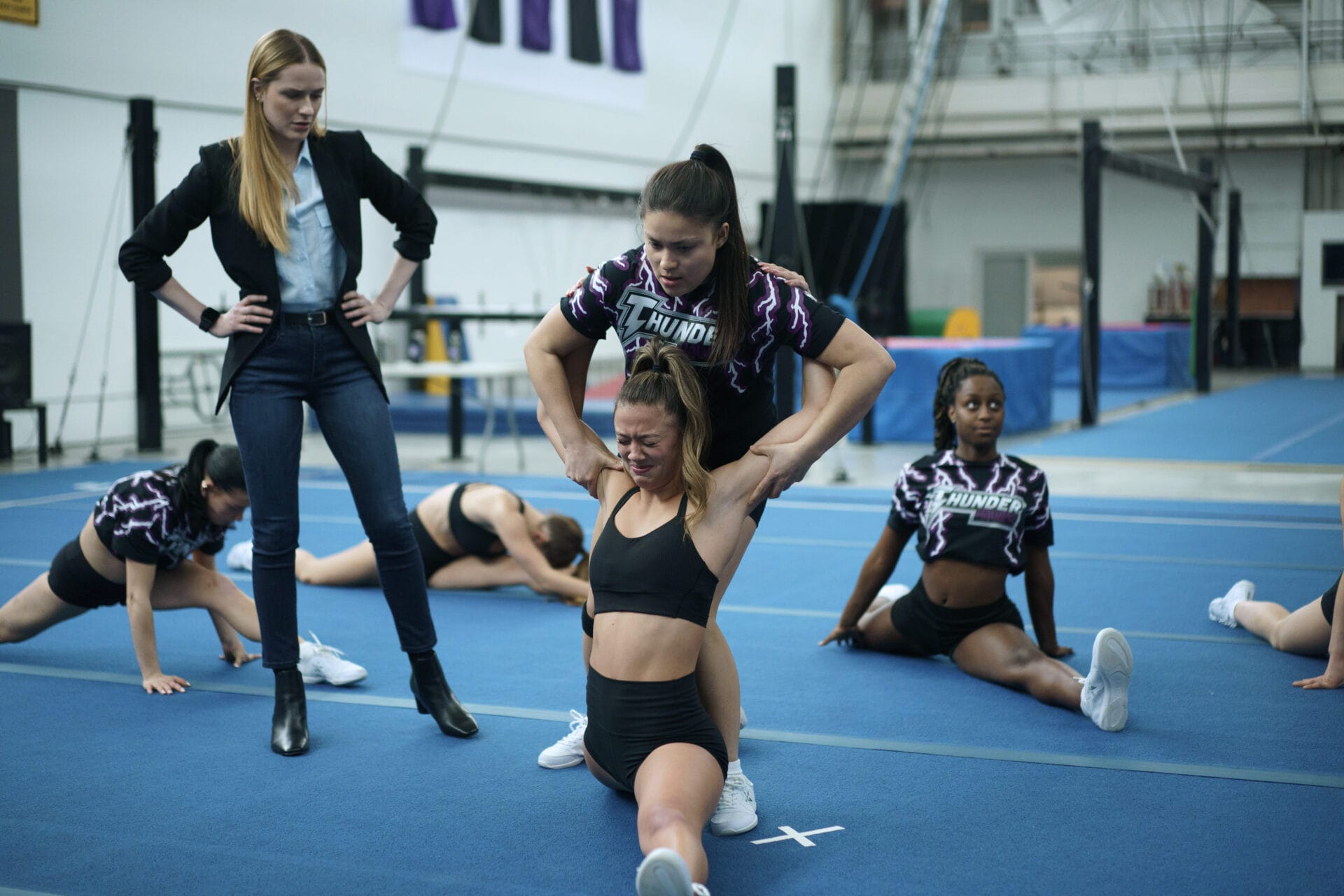
GLAAD Communications manager, actor, and screenwriter Jose Useche joined director D.W. Waterson for a conversation on Backspot and the inception of this intense and multifaceted sapphic drama.
(Please note this interview has been condensed for clarity.)
JU: First things first – how did this project come to be? Did you already have an innate interest or experience with cheerleading? Or was it simply a vessel for themes you wanted to explore?
DW: I’m a DJ/drummer and used to perform in a cheerleading uniform, which really feels like a superhero costume. But what really drew me to creating Backspot was delving into the brutal nature of competitive cheer, and taking the sport as seriously as it should be.
D.W.’s music is indeed featured in Backspot, joining an electric and eclectic soundtrack featuring Legally Blonde: The Musical, Dexy Midnight Runners classic “Come On Eileen”, and more.
JU: This was your feature-length directorial debut (congrats!), but you also created the concept of the film. How was that experience for you? Did the lines blur? Is it something you hope to always be the case for projects you pen?
DW: While the story was by me, I collaborated with an incredible writer, Joanne Sarazen to bring Backspot to life. I had a rough idea and outline of what I wanted to focus on, namely the fraught dynamic between a queer mentor and athlete, and we shaped it together from there.
JU: Your exploration of queerness in the film is so masterful. It was never an issue or a plot point, but still present and wonderfully acknowledged. Did this come naturally?
Something that was paramount and intentional for me in telling Backspot was to ensure that the conflict didn’t root from the characters’ queerness. Time and time again we’ve seen coming out stories, reiterating how hard it is to be gay — but I wanted to move past the coming out story and show what it’s like to be a young, out, queer athlete in 2024. Partly to be aspirational, but also to show how conflict can arise and demonstrate how queer folks in community can move through it.
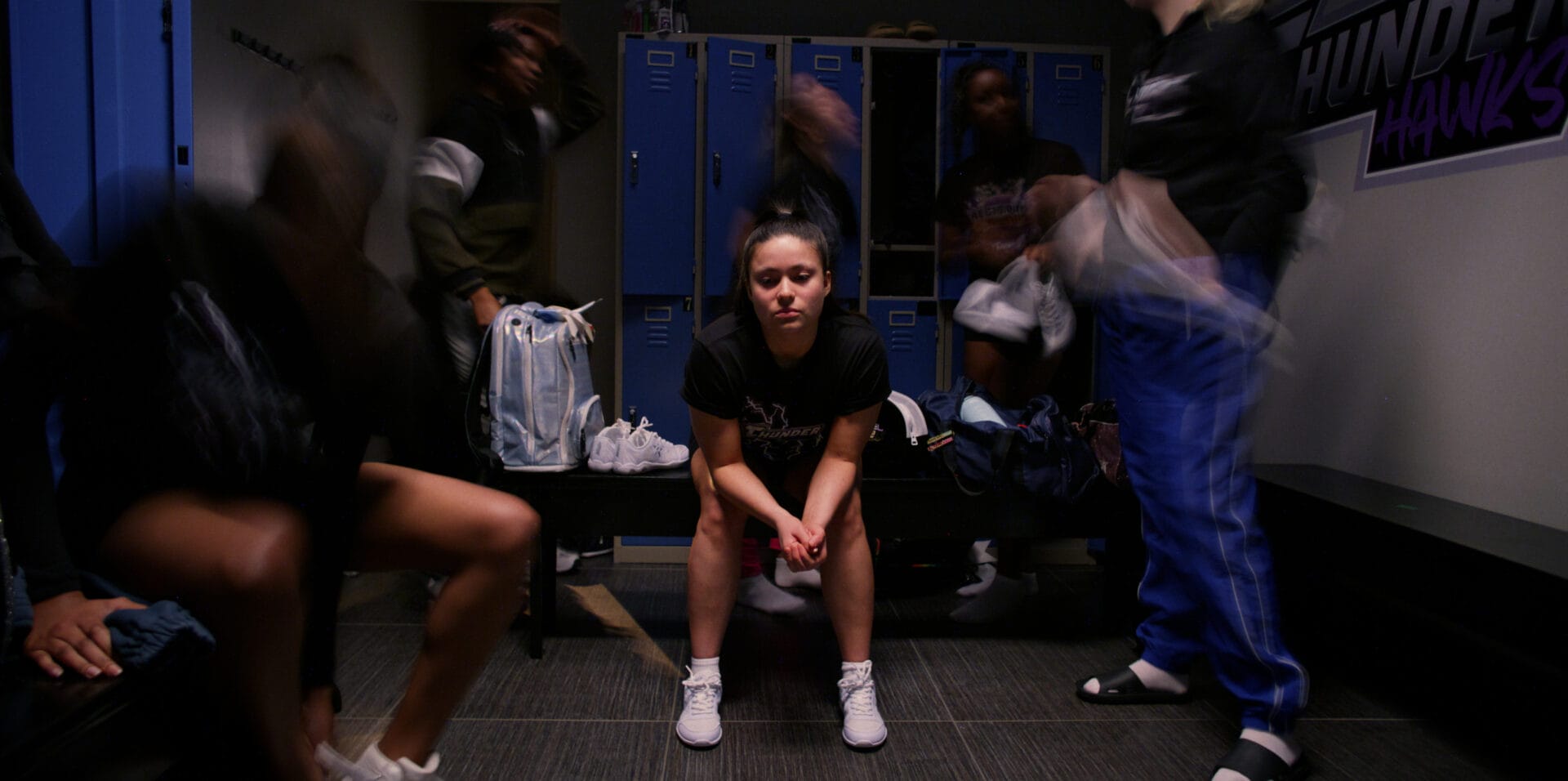
JU: Fantastic. I would agree we have 100% moved past the painful coming out stories. Speaking of, I love the moment between Coach Devon and Riley after the club – can you tell us about the motivation for this relationship?
DW: I think Devon is the queer figure we all wish we could have had. While Riley idolizes Eileen and wants to embody her despite her tough-love approach, Devon acts as a salve to that. Where Riley is obsessive, Devon is balanced. Where Riley is rigid, Devon is understanding. We all could have used a queer elder who would call us out while we’re messy, pull us up by our bootstraps, and reassure us that everything will be okay.
Backspot is available to watch in select theatres nationwide, as well as VOD (Google Play, Apple TV, Fandango at Home, Amazon Prime Video).
